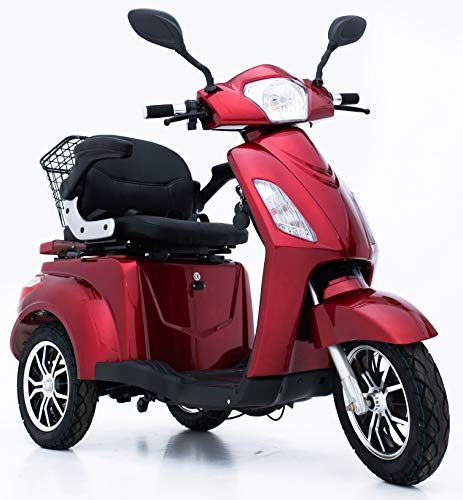Why We Are In Love With Personal Transportation (And You Should Also!)

What Is Personal Transportation?
Private transportation is the use of privately owned personal transport vehicles. This includes cars as well as bikes, scooters and unicycles. It can also refer the use of public transportation systems.
Private transport can help you save time and get you to your destination faster. Furthermore, private transport is more comfortable and provides privacy that's not offered on public transportation.
Cost
The expense of personal transportation can be a big burden for many families. This can make it hard for families to save or invest money in other areas. Fuel can be a costly expense. The good news is that there are methods to lower your costs for transportation by taking public transit or carpooling.
Even with these advantages However, there are some who prefer to use private transport to commute. They believe it is the most comfortable and convenient method of getting around. They can even opt to have their own chauffeur for their travels. The cost for this kind of transport is typically higher than public transportation, however it can provide greater peace of mind and security.
In the future personal transport will likely become more electric, as EVs make use of advancements in battery technology and charging infrastructure. Additionally, EVs will have lower emissions than traditional cars and are more accessible. This will make it easier to switch from gasoline to electric vehicles. This will reduce GHG emissions as well as traffic congestion.
Public transport has many benefits and is a great alternative to private transport. Mass transit is cheaper and environmentally friendly than private vehicles. Furthermore, it offers many benefits and is often fitted with security cameras to ensure the security of passengers. It also helps passengers avoid parking fees and maintenance. The main disadvantage of public transport is that it can be slow and unpredictably. Transporting children or the elderly can be difficult. This can cause delays and missed medical appointments.
Time is a major factor.
The time it takes to complete a personal transport task can have a significant impact on the lives of people. People who have a busy schedule often find that commuting takes too long. Carpooling, working at home or in close proximity to their workplaces can help reduce the amount of time they spend on commuting. You can also cut down on time if you walk or ride bikes instead of driving.
The development of new technologies can potentially revolutionise the personal transportation field. Electric vehicles that have solid state batteries are a good example. They offer a longer range and quicker charging times. These technologies also enhance safety and lower traffic congestion by optimizing traffic management. Another important advancement is autonomous vehicles that offer more convenient and enjoyable traveling experience. They can assist people to stay fit by staying active.
Privacy

Privacy is a fundamental aspect of personal travel. People who value their privacy often prefer to travel in private vehicles instead of on public buses or trains that share space with strangers. Moreover public transportation is frequently thought to be less safe than private transportation which could affect the safety of individuals. This is particularly the case for older people who are more likely to be concerned about their security.
The lack of privacy can be a major problem for those who travel with children. Sharing the same space as other passengers can be stressful for children and lead to behavioral problems like aggression and hyperactivity. In the end, parents are increasingly opting to travel in private vehicles to protect their children's privacy. Click On this site helps reduce the stress of travelling with children, as well as the amount of time spent in commuting. This could help save money on childcare costs.
Convenience
Utilizing personal transport is a vital aspect of daily life, but the decision you make will have an impact on your health and wellbeing. Before deciding on the most appropriate mode of transportation for you it is crucial to weigh up the pros and cons.
A few people prefer public transportation, which is usually cheaper than private transportation and requires less maintenance. Furthermore, it has a lower environmental impact because it does not emit as much carbon dioxide per passenger. It also reduces the expense of fuel and parking, while allowing more convenience and flexibility in your daily commute.
However public transport is unreliable and there are risks associated with it. You may be exposed by criminals or not be able to reach your destination in time due to weather or mechanical problems. In addition the majority of train and bus routes are jammed making it difficult to move around and relax.
On the other side private transportation is a great way to get around in privacy and comfort. It is usually much more efficient than public transportation and you'll be able to avoid crowds by travelling in a private vehicle. It's also more efficient than driving a car, as it lets you choose your own route and stops.
Despite these advantages, most people still choose to use their car as their primary method of transport. This is because they are more comfortable, or simply because they have a higher price of resale. In the future we could see a major change in personal transportation, as electric vehicles (EVs) become cheaper and easier to charge.
Researchers at MIT conducted a study to determine the factors that influence people's choice of modal options. They found that while safety is a major factor however, it does not play a significant role in determining modal choice. In reality the most important factors are speed, availability and cost. This is in line with previous studies on the modal choices, and is likely to remain for a long time. Similar to this the battery technology that uses solid state batteries could improve EV efficiency, allowing them travel longer distances while making use of the same amount of power.
